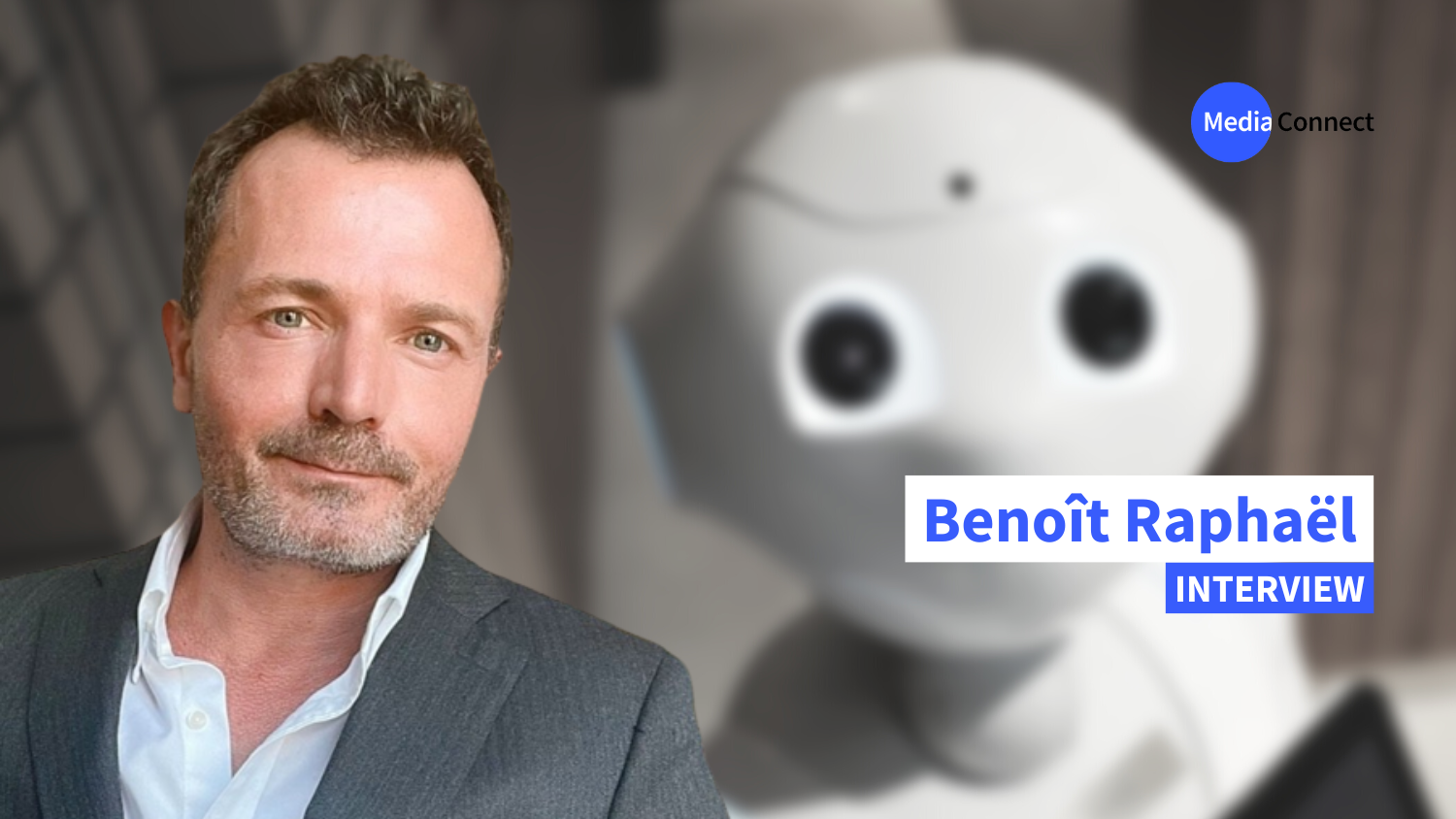Artificial intelligence is part of the major technological trends anticipated for 2022, according to Forbes. AI is reinventing various sectors, and the media is no exception. Is AI the new ally of journalists? Interview with Benoît Raphaël, founder of Flint, the media robot that creates intelligent and personalized newsletters using artificial intelligence.
Artificial intelligence is gradually making its way into newsrooms. How are journalists using it?
Today, the possibilities are numerous. There are tools to assist in writing and note-taking for journalists. For instance, AI can transcribe entire interviews, extract a headline, a quote... We don't need to take notes; the robot does it for us. There are also robots capable of writing and creating articles on various subjects-mostly marketing-oriented articles. AI can be used to analyze data, identify trends, and possibly predict future events. It's also used for text analysis, spotting misinformation, analyzing data... Another valuable aspect for journalists is its investigative capabilities. In an increasingly complex world, information is harder to find, and the concept of truth, while easier in sciences, is more intricate in news. Journalism is the draft of history; what journalists report doesn’t serve as evidence, or very little. We tell the story as it unfolds, gathering as many facts as possible. We don't have the same truth-seeking method as scientists; it's much more fragile. Journalists, being subject to confirmation biases, sometimes lack scientific and data literacy, making it challenging to extract information as easily as 20 years ago in this more complex world. AI tools can assist us. For instance, they're used for investigations, analyzing data, images, identifying anomalies, or explaining something. For example, the Argentine media La Nación extensively used AI to track the progress of a government renewable energy program, using machine learning to identify solar park constructions in satellite images. These new tools are the journalist's new tools.
You mentioned the multiple uses of AI by journalists. Would you call it a miraculous solution?
Overall, AI allows automation of content creation from data (football match results, election results, etc.). We don’t necessarily need a human to do it, which frees up time for us journalists to focus on information gathering.
However, concerning automatic criteria, while AI can accomplish many things (writing poems, dialogues, summaries, cinema...), it's not great at telling the truth. It is effective in some disposable content uses, like personal development.
You spoke of 'automation of certain tasks by AI.' What then is the role of a journalist's work?
AI doesn’t replace journalism in information gathering or story creation. It can be seen as an assistant that confirms information, summarizes, or starts writing. We can already see that it can, on many aspects, facilitate journalists' work, allowing us to focus on quality and remove automatable tasks. Ultimately, technology is a tool. The faster the world, especially in terms of information, the more chaos there is, and the more we need technological tools to navigate through it.
How does this 'chaos' you observe manifest in information?
The main issue we’re fighting against, the main problem we’re trying to solve with Flint, is information overload. Speaking of technology and journalism, it's crucial to understand that information overload was initially created by technology. The internet brought forth a proliferation of content of great richness, but at its core, search engines emerged. They highlighted voices we usually didn’t hear, all voices, and provided users with tools to express themselves more and create more content, thus organizing information overload, which eventually turned richness into noise. Noise that causes problems: when there’s too much information, it prevents someone from thinking. We have the impression that the more information we have on a subject, the more we know—actually, it's the opposite: the more information we have, the less we know. Information overload triggers mental mechanisms, cognitive biases, notably a well-known confirmation bias, making us more susceptible to misinformation. We get stuck in our own mental patterns. This creates more stress, and this stress generates disorder. Disorder that notably decreases trust in the media. In a way, the abundance of information creates a kind of chaos that inevitably puts media in competition and, therefore, generates this general mistrust.
How do we deal with this information overload? Can technology, which is the origin of this information overload, also be a resolution?
Faced with this information overload, especially as journalists and information actors, we need other technologies. It's somewhat similar to Alan Turing, the computer inventor and one of the thinkers behind AI: he created his first computer because, during the war, the Germans had an indecipherable secret code created by a machine, Enigma. Against a machine, you need to create another machine: that's how he created the first computer. Similarly, against this machine that disrupts information today, while also concealing its richness, we need to create other machines. For example, Flint offers virtuous recommendation algorithms, unlike social networks that prioritize emotional content over useful content. Journalists need other tools, like AI, to move faster because information moves faster, and sometimes, information hides elsewhere.
In the end, would you say that AI will become indispensable in the years to come for journalists?
Yes, clearly. AI-powered tools are essential for journalists to assist in their investigative work, writing, and even proofreading and fact-checking, of course. Similar to blockchain or the metaverse, it's evident that the complexity of reality is becoming increasingly challenging to grasp. The modern journalist needs to equip themselves with technical and scientific training and tools. But I'm rather optimistic about the future of journalism: in this highly tense environment of fake news, we've never needed it more to combat disinformation.
Quotes gathered by Emma Alcaraz.

